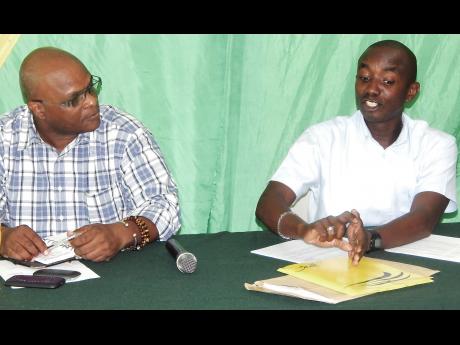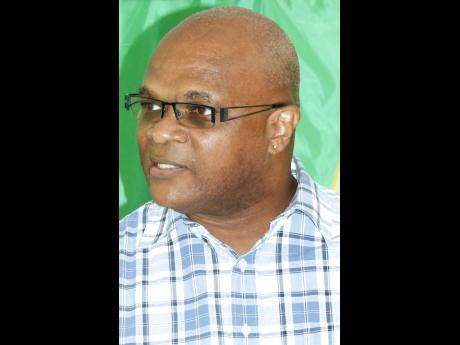Aston Cooke plots route to playwriting success - Workshop participants preparing for JCDC Drama Competition
Participants in a recent workshop at the Ranny Williams Entertainment Centre, Hope Road, got invaluable advice on playwriting from a multiple award-winning master of the craft.
"I see writing as a journey," said playwright/producer Aston Cooke at the Jamaica Cultural Development Commission (JCDC), sponsored event. "Say, I'm in Kingston and going to MoBay, and on the map I see where I'll start and end up. In the same way, I need to know where I'm going with my play before I start writing. What happens on the journey is the story I'll tell."
Cooke, an experienced educator, asked, "Where can I drive?" The audience suggested the landmarks. Flat Bridge. Bog Walk Gorge. Then Linstead, Mount Rosser. Through Walker's Wood.
Cooke asked: "Now, tell me, what can stop me from getting to MoBay?" The response: a flat tyre. Landslide. Accident. Flat Bridge, flooded out.
"That's where problems come in to stop me from getting me to my destination," Cooke explained. "Somebody in the car could get sick or could be having a baby and gives birth in the St Ann's Bay Hospital. We need predicaments in the play. They get you to your destination in a dramatic way."
BACK STORIES
Writers should know the "back stories" of clearly defined characters, What school did she attend? Did she pass Common Entrance? Did she go to high school? Does she work? What's her personality?
Don't just bring a gunman on stage without asking questions about him. Who grew him? Who looks after him?
The woman in the car could be his wife, Cooke asked, "Did she go to university?"
Audience: "She went to UTech."
Cooke: "What did she study?"
Audience: "Psychology."
Cooke: "Why did she do psychology?"
Audience: "To get married to a medical student - you."
Cooke: "OK, so she's in the car, but she doesn't want to go to Montego Bay. She doesn't like my mother. There's conflict there. Imagine the comments when we reach a roadblock."
Cooke said playwrights must decide on their main character, perhaps by asking the question, "whose story is it?" The others are supporting characters. All must be believable and there must be clear relationships among characters.
Each line should enhance the plot; that is, it should carry the car along on the journey. What's not important in the story must be cut.
The setting refers to both the atmosphere of the story and the places the writer takes the story. The environment of the play impacts on the story. "The setting you use for the car journey to MoBay could be inside the car or in the hospital," Coke said.
His general writing tips included the following:
- Format your plays properly. There is a way of typing a play, of writing stage directions, and identifying the scenes. Don't write detailed stage directions
- Give each character an objective, a reason for being in the play.
- Keep scenes simple, free of unnecessary details.
- A play must have a beginning, middle, and end. Plot your play on a story board. Structure includes the development of the situation, the crisis (turning point) and the resolution. With the resolution, you wrap up all the issues you brought up - or at least most of them.
- Edit. The first draft is not the finished script.
- Strike a balance between entertainment and the important message you want to deliver to your audience. Treat sensitive issues with care. AIDS is not a joke. Don't mock disabilities.



